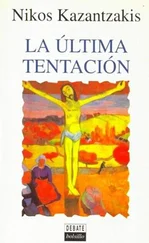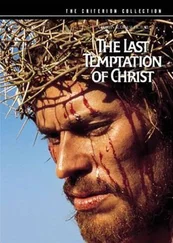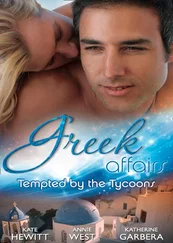Nikos Kazantzakis - Zorba The Greek
Здесь есть возможность читать онлайн «Nikos Kazantzakis - Zorba The Greek» весь текст электронной книги совершенно бесплатно (целиком полную версию без сокращений). В некоторых случаях можно слушать аудио, скачать через торрент в формате fb2 и присутствует краткое содержание. Жанр: Современная проза, на английском языке. Описание произведения, (предисловие) а так же отзывы посетителей доступны на портале библиотеки ЛибКат.
- Название:Zorba The Greek
- Автор:
- Жанр:
- Год:неизвестен
- ISBN:нет данных
- Рейтинг книги:3 / 5. Голосов: 1
-
Избранное:Добавить в избранное
- Отзывы:
-
Ваша оценка:
- 60
- 1
- 2
- 3
- 4
- 5
Zorba The Greek: краткое содержание, описание и аннотация
Предлагаем к чтению аннотацию, описание, краткое содержание или предисловие (зависит от того, что написал сам автор книги «Zorba The Greek»). Если вы не нашли необходимую информацию о книге — напишите в комментариях, мы постараемся отыскать её.
Zorba The Greek — читать онлайн бесплатно полную книгу (весь текст) целиком
Ниже представлен текст книги, разбитый по страницам. Система сохранения места последней прочитанной страницы, позволяет с удобством читать онлайн бесплатно книгу «Zorba The Greek», без необходимости каждый раз заново искать на чём Вы остановились. Поставьте закладку, и сможете в любой момент перейти на страницу, на которой закончили чтение.
Интервал:
Закладка:
As soon as the beds were ready we retired and slept without a break till the morning. I do not remember the dream I had, but I rose lightly and as fit as if I had come fresh from a dip in the sea.
It was Sunday, the workmen were to come on Monday from neighboring villages and begin work at the mine, so I had time this day to take a turn round the shores on which fate had cast me. Dawn was hardly peeping through when I started out. I went past the gardens, followed the edge of the sea, hurriedly made my acquaintance with the water, earth and air of the spot, picked wild plants, and the palms of my hands became redolent with savory, sage and mint.
I climbed a hill and looked around. An austere countryside of figs and vines. In the sheltered hollows, orange groves, lemon and medlar trees; near the shore, kitchen gardens. To the south, an expanse of sea, still angry and roaring as it came rushing from Africa to bite into the coast of Crete. Nearby a low, sandy islet flushing rosy pink under the first rays of the sun.
To my mind, this Cretan countryside resembled good prose, carefully ordered, sober, free from superfluous ornament, powerful and restrained. It expressed all that was necessary with the greatest economy. It had no flippancy, nor artifice about it. It said what it had to say with a manly austerity. But between the severe lines one could discern an unexpected sensitiveness and tenderness; in the sheltered hollows the lemon and orange trees perfumed the air, and from the vastness of the sea emanated an inexhaustible poetry.
" Crete," I murmured. " Crete…" and my heart beat fast.
I came down from the little hill to the edge of the water. Chattering girls appeared with fichus as white as snow, long yellow boots, and skirts tucked up; they were going to mass in the convent over there, gleaming a dazzling white by the sea.
I stopped. As soon as they noticed me, the girls' laughter ceased. At the sight of a strange man their expression became one of wild distrust. Their whole bearing from head to foot was suddenly on the defensive, their fingers clutched nervously at their tightly buttoned blouses. Fear surged in their blood. For centuries the Corsairs had made sudden incursions on to the whole of the Cretan coast facing Africa, ravishing ewes, women and children. They bound them with their red belts, threw them into the bottoms of their ships and set sail to sell them in Algiers, Alexandria, Beirut. For centuries the waters round these shores, festooned with black tresses, have resounded with lamentations. I watched these frightened girls advance, clinging together as if to form an impassable barrier. It was an instinctive reaction, indispensable in earlier times and today repeated without reason. A bygone necessity dictated the rhythm of their movements.
As the girls passed in front of me, I quietly stepped aside, smiling. And immediately, as if they suddenly felt that the danger they feared had passed centuries ago, and that they had awakened in our age of security, their faces lit up, the serried line of battle spread out and, all together, they bade me good day in clear and light-hearted tones. At the same time the merry, sportive bells of the distant convent filled the air with sounds of rejoicing.
The sun had risen, the sky was clear. I crouched among the rocks, perched like a seagull on a ledge, and contemplated the sea. My body felt powerful, fresh and obedient. And my mind, following the waves, became itself a wave, unresisting, submissive to the rhythm of the sea.
Then my heart began to swell. Obscure, pleading and imperious voices rose within me. I knew who was calling to me. Whenever I was alone for a moment, this being cried out, in an anguish of horrible presentiments, transports and mad fears-waiting to be delivered by me.
I hurriedly opened Dante, my travelling companion, in order not to hear and to exorcise the fearful demon. I turned over the pages, reading a line here and there, or a tercet, and committing to memory the entire canto. Out of those fiery pages the damned rose howling. Halfway up the rocks, wounded souls sought to scale a precipitous mountainside. Higher still, the souls of the blessed moved among the emerald fields, like brilliant fireflies. I wandered from the highest to the lowest regions of the terrible house of destiny; I went freely about hell, purgatory and paradise, as if in my own dwelling. I suffered, I awaited or tasted beatitude, carried away as I was by those superb verses.
Suddenly I closed my Dante and looked out over the sea. A gull, its breast resting on the water, rose and fell with the waves, abandoning itself to them and enjoying the pleasures of abandonment. A youth, sunburnt and barefoot, appeared at the water's edge singing love songs. Maybe he understood the pain they expressed, for his voice had begun to grow hoarse, like that of a cockerel.
For hundreds of years, Dante's verses have been sung in the poet's country. And just as love songs prepare boys and girls for love, so the ardent Florentine verses prepared Italian youths for the day of deliverance. From generation to generation, all communed with the soul of the poet and so transformed their slavery into freedom.
I heard a laugh behind me and at once fell from the Dantesque heights. I looked round and saw Zorba behind me, his whole face creased with laughter.
"Well, boss, this is a fine way of going on!" he cried. "Here I've been looking for you for hours, but how could I know where to get hold of you?"
Seeing I remained silent, he continued:
"It's gone midday, the hen is cooked; the poor thing'll be dropping to bits, you know!"
"Yes, I know, but I'm not hungry."
"Not hungry!" Zorba exclaimed, slapping his thighs. "But you've not had a bite since morning. The body's got a soul, too, have pity on it. Give it something to eat, boss, give it something; it's our beast of burden, you know. If you don't feed it, it'll leave you stranded in the middle o' the road."
I had despised the pleasures of the flesh for years, and, if possible, I would have eaten secretly, as if committing a shameful act. But so that Zorba would not grumble I said:
"All right, I'm coming."
We started off in the direction of the village. The hours amongst the rocks had passed as time passes between lovers, like lightning.
"Were you thinking of the lignite?" Zorba asked with some hesitation.
"And what else d'you expect me to be thinking about?" I replied, laughing. "Tomorrow we'll start work. I had to make some calculations."
"What's the result of the calculations?" he asked, as he made his way carefully.
"After three months we must extract ten tons of lignite a day to cover expenses."
Zorba looked at me again, this time anxiously. A little later he said:
"And why the devil d'you have to go down to the sea to make calculations? Pardon me, boss, for asking this question, but I don't understand. When I have to wrestle with figures, I feel I'd like to stuff myself into a hole in the ground, so I can't see anything. If I raise my eyes and see the sea, or a tree, or a woman-even if she's an old 'un-damme if all the sums and figures don't go to blazes. They grow wings and I have to chase 'em…"
"But that's your fault, Zorba," I said to tease him. "You don't concentrate."
"Maybe you're right, boss. It all depends on the way you look at it. There are cases even wise old Solomon… Look, one day I had gone to a little village. An old grandfather of ninety was busy planting an almond tree. 'What, grandad!' I exclaimed. 'Planting an almond tree?' And he, bent as he was, turned round and said: 'My son, I carry on as if I should never die.' I replied: 'And I carry on as if I was going to die any minute.' Which of us was right, boss?"
He looked at me triumphantly and said:
"That's where I've got you!"
Читать дальшеИнтервал:
Закладка:
Похожие книги на «Zorba The Greek»
Представляем Вашему вниманию похожие книги на «Zorba The Greek» списком для выбора. Мы отобрали схожую по названию и смыслу литературу в надежде предоставить читателям больше вариантов отыскать новые, интересные, ещё непрочитанные произведения.
Обсуждение, отзывы о книге «Zorba The Greek» и просто собственные мнения читателей. Оставьте ваши комментарии, напишите, что Вы думаете о произведении, его смысле или главных героях. Укажите что конкретно понравилось, а что нет, и почему Вы так считаете.












